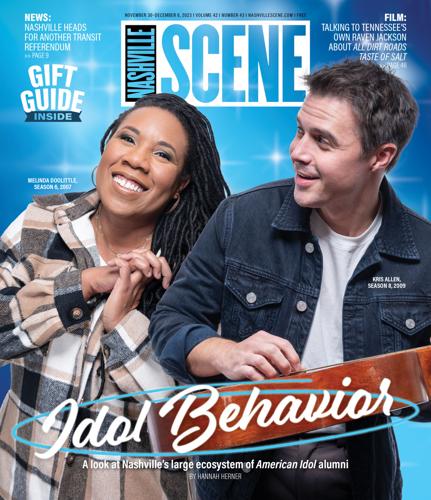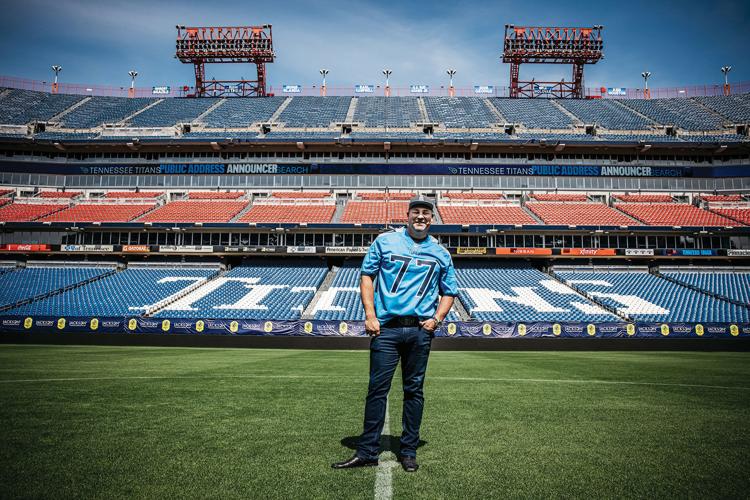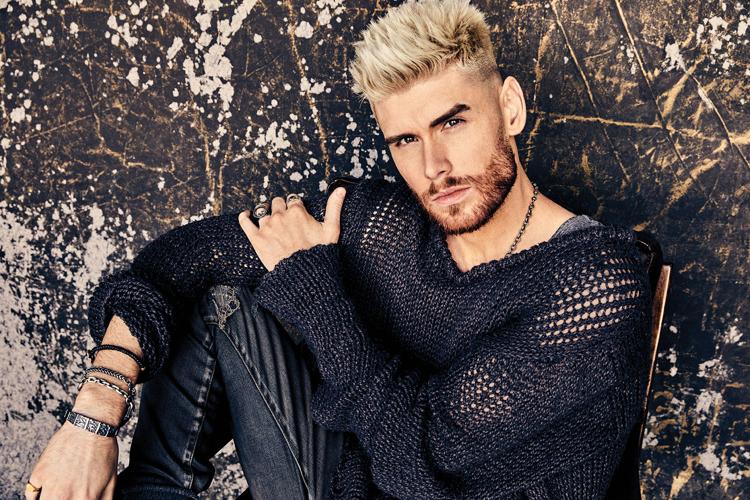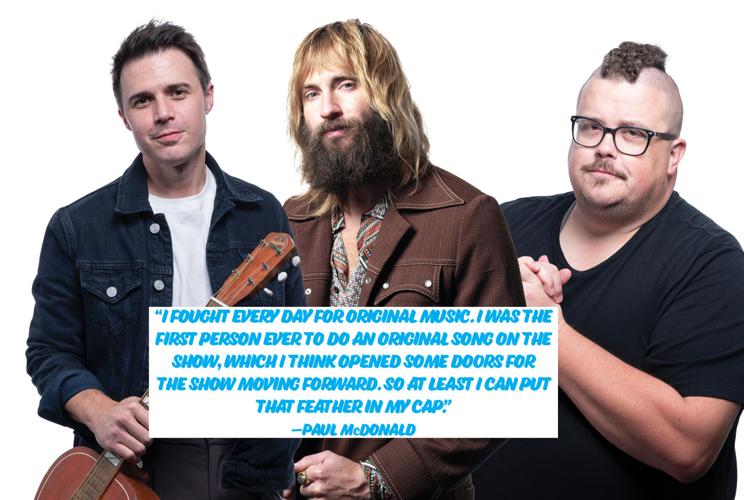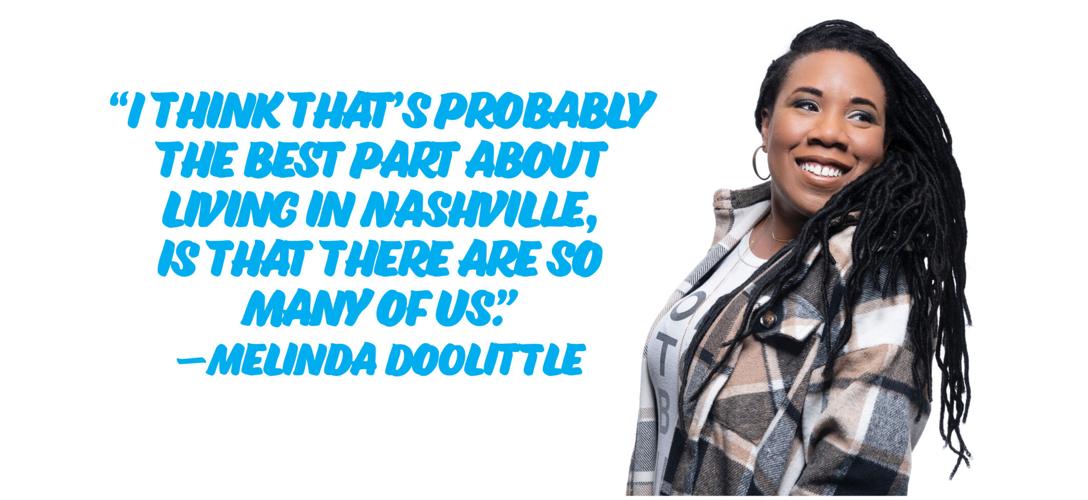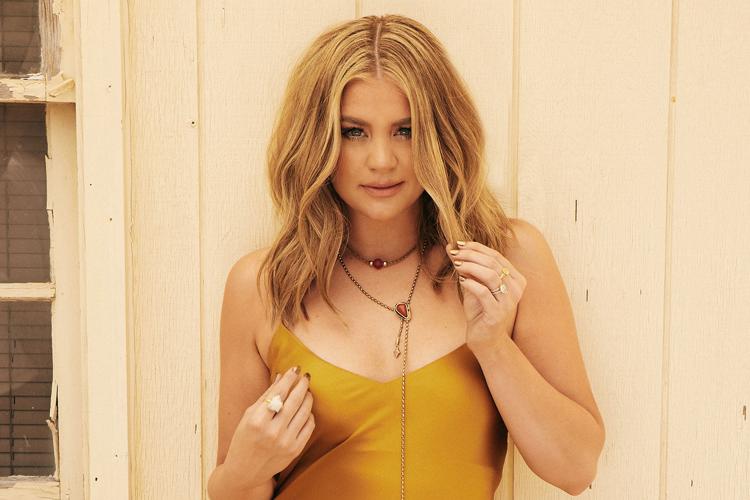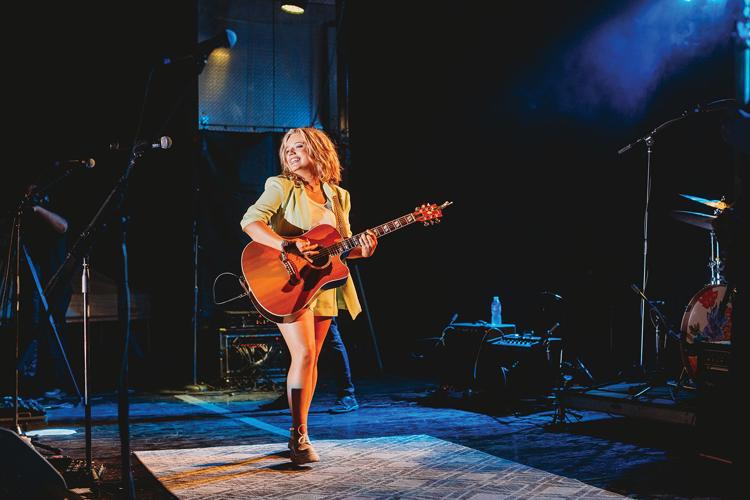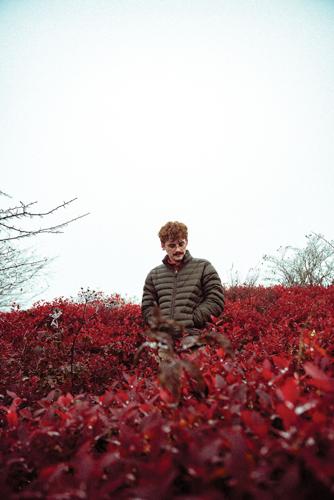“I’ve never been on a plane before, and this country girl is going to Hollywood!”
That’s what Carrie Underwood announced to a room full of contestants in 2004, clutching a gold piece of printer paper — her golden ticket to enter the fourth season of American Idol.
Earlier in the episode, viewers saw the 21-year-old from Muskogee, Okla., with scrunched hair and a layered lace cami, working on her family’s farm. Later she’s seen pacing around the St. Louis audition venue nervously.
Underwood’s is a satisfying arc that began with the show and was fulfilled in the years following. The winner of her season, she’s gone on to win eight Grammys, 25 CMT Awards and seven CMA awards, along with many other accolades and tens of millions of records sold.
What’s different about Underwood compared to most other similarly successful artists: Thirty million of us were watching from the birth of her music career. And many of us were investing in it, if only in the form of some landline buttons pressed and votes cast. The viewers have a little piece of her crown. That is the magic of American Idol.
American Idol began in 2001 as a part of British artist manager and TV producer Simon Fuller’s Idols empire — at a time before social media kicked open the door to self-promotion for hopeful artists. Would-be contestants filled venues across the country and filed through hours of queues and screenings, waiting for a chance to sing for judges Simon Cowell, Paula Abdul and Randy Jackson. The show, which aired on Fox, saw its peak viewership during the Season 7 finale in 2008, when 31 million viewers watched David Cook beat out David Archuleta. (For reference, more recent seasons have topped out at around 10 million viewers.)
But in 2016, after 15 seasons, it all seemingly came to a close, with a televised reunion and a Fox series finale. Audiences thought it was over, and in a way, it was. But less than two years later, American Idol relaunched on a new network. ABC picked up the show, referring to the 2018 season as Season 1. For the past three seasons, the series has made a stop for auditions in Nashville. Earlier this month, Idol held auditions at the Graduate in Midtown.
Performances like William Hung’s famous rendition of “She Bangs” have no place in the new iteration of the show, which takes itself more seriously. Cowell’s snarky comments are also nowhere to be found — the show’s now far too earnest for that. These days American Idol flies in great singers to a select few cities, where they meet with schools including Belmont University to recruit cast members.
Underwood is just one of an extensive list of Idol alumni who are part of Nashville’s expansive entertainment community. Some of them agreed to speak with the Scene about what happened after their time on the show.

Lauren Alaina
Fame
As the seasons went on, American Idol began to beget stars inspired by earlier contestants. Viewers first met a 15-year-old Lauren Alaina in 2011. Earlier this month, she achieved her dream of being inducted into the Grand Ole Opry.
“I was a small-town girl who watched women like Carrie Underwood and Kelly Clarkson come into their own,” Alaina tells the Scene. “They laid a pathway for me to follow in. I just want to be a trailblazer for young women with dreams.
“People still to this day come up to me and say, ‘I loved you on American Idol, and I’ve been your fan since day one,’” she continues. “It’s really fun, because I have such a devoted fan base because of them voting me into this career. I have gotten to watch them grow up too.”
Sixteen years and a significant haircut later, Chris Sligh may be unrecognizable to some viewers. Sligh placed 10th on Season 6. Nashville has a reputation for mostly leaving famous people alone, but that went out the window for American Idol contestants at the show’s height. Immediately following his season’s end, the curly-headed Sligh had to leave a local cafe because of a line of fans forming at his table. While the show was airing, he recalls cars screeching to a halt upon spotting him and runner-up Blake Lewis walking down a Los Angeles sidewalk.
Sligh’s wife Sarah, who viewers may also remember from the show, recently tried to explain the phenomenon to their 10- and 13-year-old children.
“She’s trying to explain to them how famous I was at one point,” Sligh says. “To them, it doesn’t even really make sense. To them, Taylor Swift is as famous as it gets. I wasn’t Taylor Swift famous, but I was on the cover of People magazine twice.”
He laughs and adds, “Then you have to explain — there were these things called magazines.”
In his Nashville neighborhood, Season 8 winner Kris Allen is rarely asked for a picture anymore, but the neighbors do seem to know who to come to when they need someone to perform at the school fundraiser.
“The teacher is like, ‘Will you sing a Christmas carol for us?’” says Allen. “I love that stuff. It’s great. They know what I do.”
The Nashville Way
Adoration for Idol contestants hasn’t always translated into success in the Nashville music scene — especially for artists who’d been pursuing a music career before they went on the show. Some say there was friction between how the producers saw them fitting into the cast and how they saw themselves fitting into the music world. Prior experience was a plot point that often landed on the cutting-room floor when it didn’t serve a predetermined arc.
Sligh and Season 10 contestant Paul McDonald both went into the show expecting to get a bit of publicity for their bands. McDonald’s band had a tour planned. Sligh’s band was offered a record deal the day he got the golden ticket to Hollywood. They each made it further in the competition than they anticipated — and record companies were interested only in solo contracts. The bands broke up. Season 6 third-place finisher Melinda Doolittle looked to go back to her backup singer career post-Idol, but lost her previous gigs because she had gained too much fame.
Some former contestants describe their connection to the show as a “scarlet letter.” McDonald had been touring with his band The Grand Magnolias for six years before Idol — they even won a Lightning 100-sponsored battle of the bands in the lead-up to McDonald’s season. After the show, McDonald struggled to book gigs at the same venues he had before, like Exit/In or stages at Bonnaroo. Booking agents saw him as a pop artist, and audiences hung onto his American Idol Rod Stewart cover shtick.
“You learn from being in rooms with brilliant people, and American Idol definitely puts me in some rooms that I couldn’t have gotten into before,” McDonald says. “But it definitely shut down a lot of doors in the world that I was in beforehand.”
Now he thinks of American Idol as a band he was in for a year.
“It really was just a season of my life,” McDonald says. “I was a flying monkey in the Wizard of Oz in my high school play, and no one ever brings that up, but American Idol kind of feels like I was just the flying monkey in the Wizard of Oz for a season.”
Walker Burroughs, a 2019 contestant and Belmont alumnus, says he was grateful in the end not to be signed to a restrictive record deal via the show.
“I think that it is a truth that there is something of a scarlet letter that comes with the show in the music industry,” Burroughs says. “The big music business guys view it [like] I was handed this thing. I didn’t work for this thing. There’s some truth in that. It took me a long time to realize I have to do the work now. I’m off the show. That doesn’t equate to a career. I have to put my nose down and earn my spot here.”
Throughout his season, Sligh pushed to sing more rock songs — the kind of music he was making before the show, and in line with what he planned to release afterward. Instead, producers had him singing songs like the Diana Ross/Lionel Richie ballad “Endless Love.” He tells the Scene that an executive producer told him he wasn’t interested in making artists, but instead making a “fucking TV show.”
“I’m really grateful for the show, but I came off the show and what I realized in the end is that I was just a Kardashian,” says Sligh. “I was a TV character.”
McDonald remembers butting heads with producers, pushing to play original music — or at least songs by his peers in the indie music world.
“I fought every day for original music,” he says. “I was the first person ever to do an original song on the show, which I think opened some doors for the show moving forward. So at least I can put that feather in my cap.”
The contrast between McDonald’s experience and that of 2022 contestant Leah Marlene is stark. She listened to 100 original singles pitched to her, and wrote a handful of new songs. But in the end, she says she was happy with the commercial spin she gave her original single “Flowers,” which was released during her time on the show.

Leah Marlene
“American Idol is wonderful for the fact that they’re very, very open to original music,” Marlene says. “Whether you’re performing on the show, or if you make it far enough to release a single, your originals are definitely taken into account. It’s an amazing show to go on for artists, because you can definitely be an original artist.”
Season 11’s Colton Dixon, on the other hand, found a soft place to land post-Idol in the Christian music world.
“[Walk into] any reputable coffee shop in Nashville and you’re going to see someone in your industry,” he says. “It’s just the way it is. But one thing that’s kind of nice is within our industry — it pretty much feels like family. So anytime you see somebody, it’s like a warm hug.”

Colton Dixon
A mentor at Lipscomb University, Dixon advises younger contestants to stick to their guns creatively.
“If you don’t know who you are, what you want to do, someone else will figure it out for you, and that can be scary,” he says.
The Friends Along the Way
Fans will be pleased to learn that at least among former contestants from Nashville, some alumni are close with one another, and American Idol group chats are a thing. Doolittle describes Allen as “one of her favorite people in the world.”
“I think that’s probably the best part about living in Nashville, is that there are so many of us,” Doolittle says. “There’s this bond with us that it doesn’t matter what season you were on, we just all get each other because we’ve been through the same thing. My therapist would probably call it a trauma bond. It’s so hard to explain American Idol experience to anyone, and so the people that just innately get it, you have a connection to.”
Doolittle says that as the oldest contestant on the show during her season, she was better prepared for life as an artist when the cameras stopped rolling. Today she works with Porter’s Call, a local nonprofit that offers free therapy for artists. The organization refers artists joining competitions to her.
“I love getting to sit with people and be like, ‘Here’s the reality of what you’re going to be going through, and here’s where I can walk alongside of you,’” she says. “‘No matter what age you’re at, we can help you do this in a way that is healthy mentally for you, and you can come out on the other side a stronger human being and having experienced something really beautiful, and you’re able to enjoy it, as opposed to endure it.’”

Walker Burroughs
Alumni run into each other at gigs and restaurants unannounced, too. Burroughs tells the Scene that at one shared gig with Allen, he confided, “I feel like I’m trying to prove to people that I deserve a spot here.”
“You do,” Allen told him. “I don’t know you, I’ve never heard you sing. But you do.”
“I think we very much have a shared experience, and I think we have an appreciation for what all of us do and have done, and the trials — or not — that we have to go through,” Allen says. “We try to stay in touch or at least try and support each other.”
Measuring Success
Success has taken different shapes for Nashville Idol alumni. For McDonald, it looks like being back where he was before the show, touring with his new band, Paul McDonald and the Mourning Doves, and playing venues like Exit/In. He’s back in East Nashville, a block away from the band house he lived in before the show, and booking the One Big Love festival.
Sligh considers his recording artist days behind him, and makes a living songwriting. Burroughs and Marlene both released singles this month. Dixon recently released a song with fellow American Idol alumna Gabby Barnett.
Allen and Season 10 alumna Haley Reinhart recently released a single together too. Fourteen years after his appearance on the show, he says his 2024 album will be the most true to himself.
“I took some time to figure out what I wanted to say, what I wanted to do, how I wanted to make a record,” Allen says. “It’s taken a while, but I’m really, really, really excited about the new stuff that’s coming out next year.”
After some time as a solo artist, Doolittle is back to background singing. She missed the camaraderie, she says. She’s also written a book, created a podcast and toured with Kristin Chenoweth, and plans to maintain her streak of yearly Christmas shows. Getting back into background singing might have looked like a backward step for some, but she says it feels like home to her.
“I think success looks different for everybody,” Doolittle says. “For me, it looks like finding the things that I love and just doing them — being able to make a living doing things that I love, and it doesn’t have to be just one thing. I found that when I was singing nonstop it was getting tiring. It was becoming just a job, and I was losing the enjoyment of it.”

Matt Rogers
When Matt Rogers joined American Idol Season 3 nearly 20 years ago, he was trying to figure out his path after a professional football career. Rogers says he wasn’t one of the strongest singers on his season, but he sought to make up for that by getting the audience involved in his performances. That became a transferable skill as the Tennessee Titans’ current in-stadium announcer.
“I love performing,” Rogers says. “Running out of a football tunnel, listening to 100,000 fans screaming for you — the only thing that has ever replaced that feeling it gives you was when that little red light comes on that camera, and you get that same adrenaline rush.”
Idol host Ryan Seacrest gave Rogers his first job as a correspondent with his radio show On Air With Ryan Seacrest. Rogers went on to host shows on the Discovery Channel and the Lifetime network, and also hosts charity events.
For better or worse, American Idol is a show that made its former contestants who they are today. They all say they’d do it again.
“Every now and then, people will be like, ‘What was it like being on American Idol?’” Sligh says. “It was awesome, and it sucked all at once. It was amazing and it was horrible together. The older I get, the more I realize how much of the human experience is all of the emotions intertwined together.”
Hannah Cron contributed reporting for this story.


